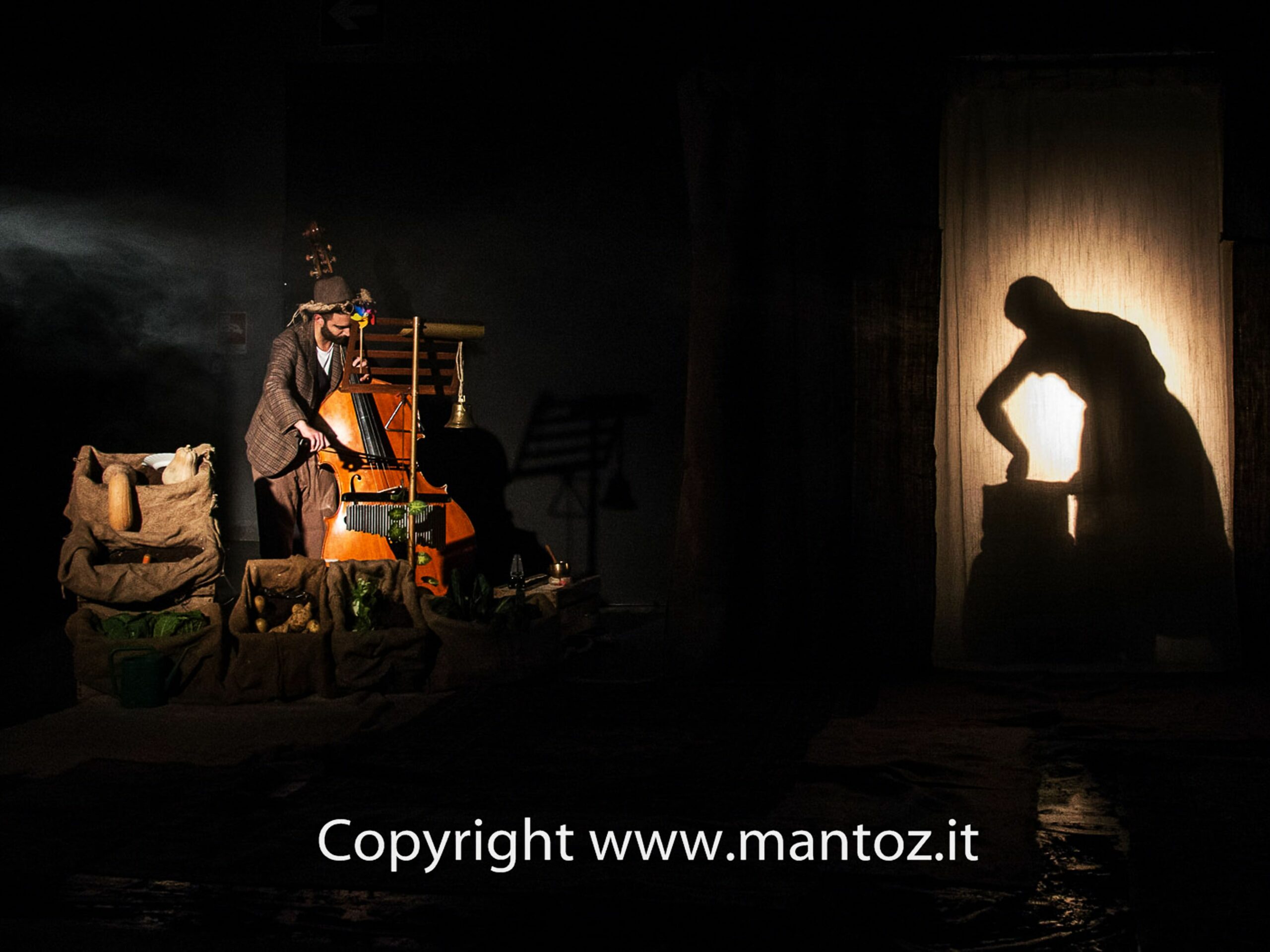Produced by Obsoleta Teatro/Reciclare.Arte.Fe Project supported by Teatro Nucleo/Teatro J. Cortàzar
Directed by: Obsoleta Teatro
Playwriting: Greta Marzano
On the stage: Natasha Czertok, Greta Marzano, Martina Pagliucoli
Live music and sound score by: Enrico Scavo
Light design: Lorenzo Magnani
Special thanks to: Davide Della Chiara, Giulia Generali
THE PLAY
The play has been conceived and created for an audience of children aged from 7 to 13 years. Chenditrì (Candy Tree) is a one-act play lasting 50 minutes, inspired by the drama “The exception and the rule” by Bertolt Brecht and the video-documentary Land Rush (2012) by Hugo Berkeley and Osvalde Lewat. The show starts from the desire to tell a young audience about one of the most hidden faces of today’s global exploitation: that of agricultural resources.
Using the old colonialism rules, still nowadays endless portions of arable land in Africa, Latin America and Southern East Asia are subtracted to local population to be exploited by the multinationals of food and energy industry.
A total anthropological disaster, since the massive production of soya, palm oil, coffee, corn, sugar cane, etc. reduces the biodiversity of the countries subject to this exploitation and also represents a factor of disintegration for the communities that inhabit them. Entire cultures, along with the agricultural traditions that characterized them for millennia, disappear under the weight of the energy demands in the industrialized world.
It happens today in Mali for example, where the local government grants large plots of land to European, American, Chinese, Indian, Japanese industries and where – instead of the ancient cereal crops and the traditional and valuable shea trees – they imposed the sugar cane, jatropha plantations and other plants. But it also happens in our territory, in Italy.
Indeed, in Pianura Padana (a huge plain in north-east of Italy) a farmland that is equal to seven times Piazza Duomo in Milan is lost everyday.
This destruction is not only caused by the cementification but also by the production of bio-fuels, the latest speculation in the energy and transportation market.
In order to speak to the young audience about such a complex issue, in 2014 – the International Family Farming Year – Obsoleta Teatro chose to speak about the aspect that more closely concerns the daily life of young consumers today: the junk-food.
There is no doubt, in fact, that all of today’s advertising campaigns of the macro-food industry identify very young people as one of their main business objectives. In the story, Chenditrì begins with one of the most popular ingredients, loved by children and by a larger public: the sugar that, in the fiction of the story, becomes the magical and fascinating little candy. The tone and the style that support the story are those of a fairy tale.
The darkness, the shadows, the graphic animation, the sound of the double-bass and those of a played-live nature, the parody of the advertising language, the comedy are the imaginative means to communicate and make viewers reflect on the big and small deceptions of their own time. The dramaturgical mechanism of a “double end” stimulates the young audience to think over and to participate actively. With Chenditrì, Obsoleta Teatro continues an itinerary that began with In the bottle !, a play about recycling and the waste cycle. Some of the set designs of the play were indeed made by using waste materials.
Trailer of the play
THE PLOT
We are in Balalla, at the border of the desert. Langmann, a candy merchant, is traveling to test his latest invention: the small candy, a seed that quickly gives birth to gigantic caramel plants.
Led by Ashram, the handyman of Balalla, Langmann reaches the old plantations to take possession of them and he plants his prodigious seeds. There, he meets Idrissa, the last farmer who stayed to take care of the land. For a long time, in fact, Balalla is in the grip of drought that pushed farmers to leave the country to seek their fortune elsewhere. But Idrissa is not completely alone: her friend, the scarecrow, enlivens the garden plucking the strings of a double-bass. When Langmann meets Idrissa, he is carrying the self-explanatory papers: “The government of Balalla authorizes me to cut all your trees and all your dry seedlings for my Candy Trees”.
What will happen at this point? What will become of the old plantations of Balalla? Will Langmann be able to turn the whole country into a candy factory?
